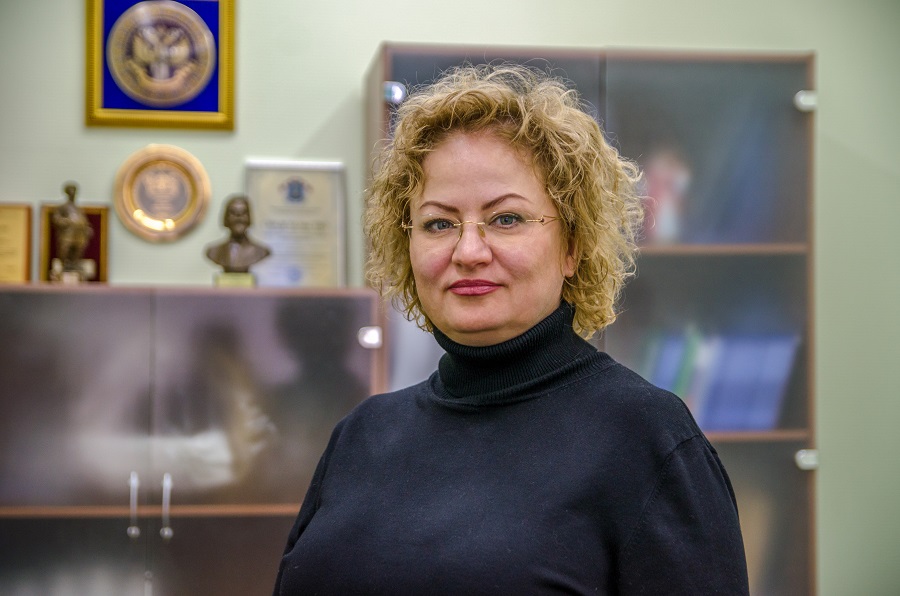The Institute of Law of South Ural State University is engaged in the LegalTech scientific and practical international project at the intersection of digital technologies and jurisprudence. A multinational team of scientists is conducting a big-scale study of the global phenomenon of digitalization of law. Scientists are working on the creation of a draft regulatory legal act on the use of digital technologies, sharing their experience and conducting joint research.
Artificial intelligence will be taught to make judicial decisions
Digitalization of law means the solution of legal problems by using digital technologies and scientific understanding of the components of Smart Industry (Industry 4.0, the Fourth Industrial Revolution) from a legal standpoint, in terms of the structure and content of law, its branches and institutions. Director of the SUSU Institute of Law, Candidate of Sciences (Law) Elena Titova, Candidate of Sciences (Law), Associate Professor Tikhon Podshivalov, Doctor of Sciences (Law), Professor Andrei Kuzmin and other scientists are working on the LegalTech project as part of an international team of scientists from Russia, the United Arab Emirates, Malaysia and a number of other countries.
The project has two goals: research and practical ones. The research goal implies the development of a scientific doctrine of digitalization of law and a scientific concept of the regulatory environment for the introduction of digital technologies. The practical goal is to create services and digital platforms. For example, work has been proceeding on the Smart Service for Legal Risks' Management to manage legal risks that may occur during the preparation of legally significant documents (contracts, complaints, statements, etc.), what will reduce the number of legal conflicts.
"In our country, there is no systematic legislative framework for the introduction of digital technologies, and there is a need for a theoretical understanding of the legal nature of the phenomena associated with digitalization of law. At the same time, there is a need to form a technological product for the legal support of citizens, for whom it is difficult to know a large array of regulatory acts necessary to consider possible legal risks when drawing up any documents," says Director of the SUSU Institute of Law, Candidate of Sciences (Law), Associate Professor Elena Titova.

Photo: Director of the Institute of Law Elena Titova
Digital technologies have spread throughout all the spheres of life; however, a favourable jurisdiction for the development of the digital industry has not been created in Russia. Scientists also note the imperfection of the regulatory framework for collecting and using Big Data - turnover capacity, legal regime and security leave much to be desired.
These are major problems, because right now digital sovereignty is emerging among countries, and Russia needs to form one of its own. The winners are those countries in whose jurisdiction this or that technology is legalized. It is necessary to develop an architecture of artificial forensic intelligence and digital technologies for crime prevention, foresee the risks of negative consequences of simulation of social, political, legal processes, including with the use of digital twins technology. Russia needs laws that take into account the development trends in science and digital technologies, laws for real life. The drafts of such laws are developed by scientists.
The partners of the SUSU Institute of Law in the research segment of the project are the Law Faculty at University of Maribor, Slovenia; Law Faculty at University of Gdansk, Poland; and College of Business Administration at University of Ajman, United Arab Emirates
Currently, work is being done on the preparation of a collective monograph under the title "The Law of the Digital Environment", which includes more than twenty chapters in the project and, in its content, will reflect the issues of digitalization of most branches of law. Staff members of the Institute of State and Law of the Russian Academy of Sciences are taking part in this research.
In the near future, it is planned to open a Digital Law Lab international research laboratory, which will allow conducting advanced research at the intersection of law and technology.
SUSU is a participant of Project 5-100, which aims to enhance the competitiveness of Russian universities among the world's leading research and education centres.




